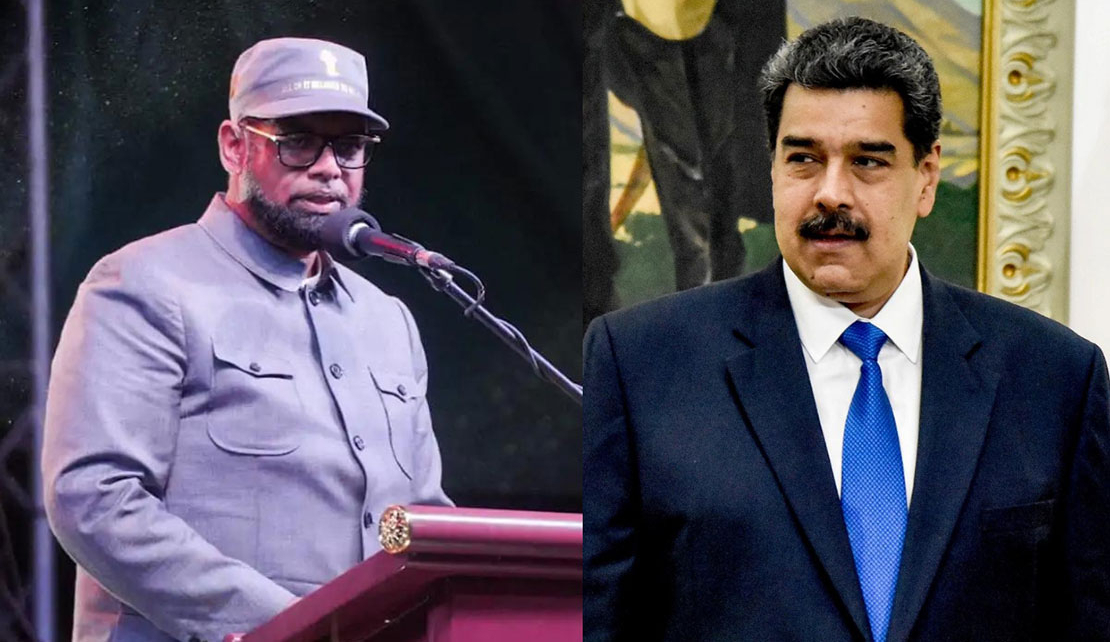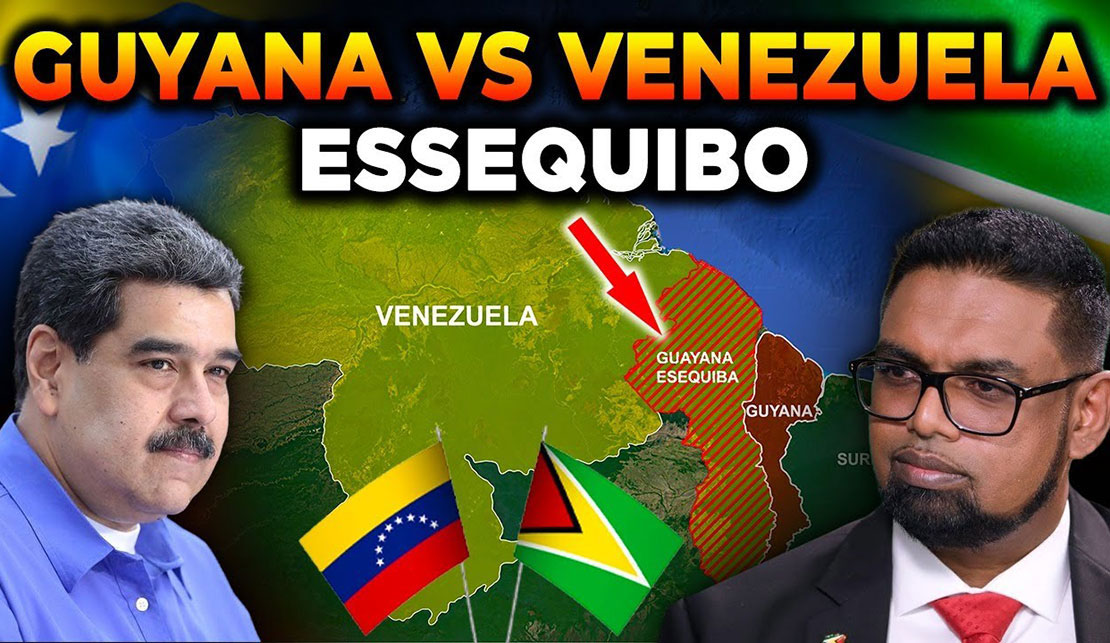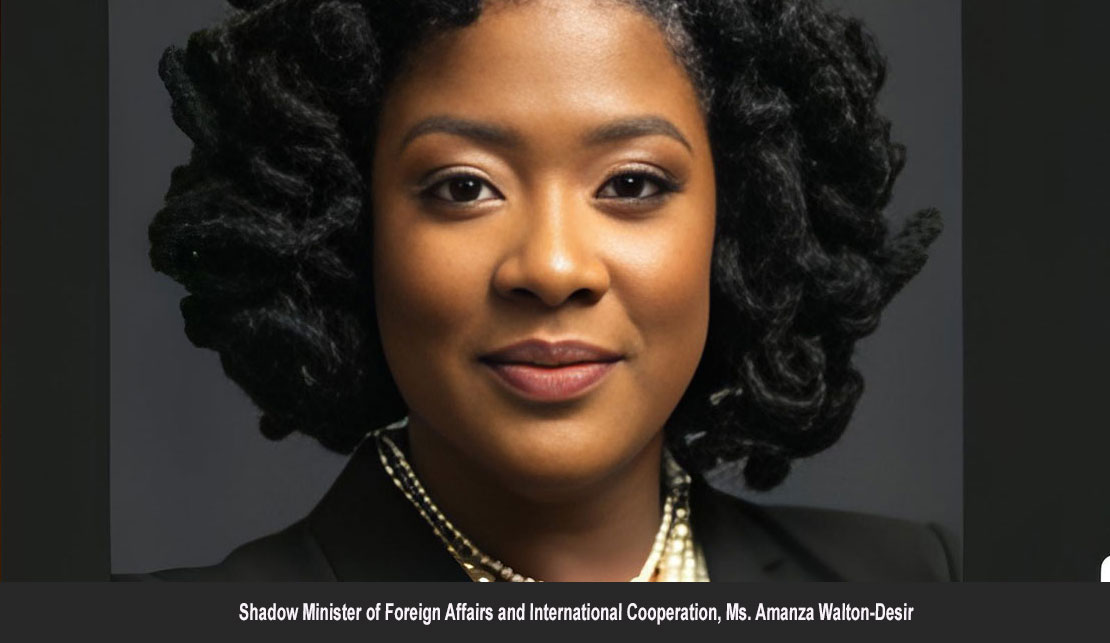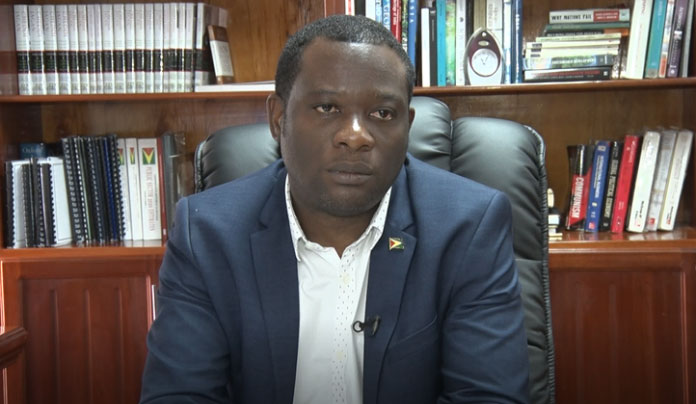Venezuela Says Guyana's Oil-Rich Essequibo is Now Their New State

GEORGETOWN, Guyana, March 22, 2024 - In a dramatic escalation of long-standing territorial disputes in South America, Venezuela's National Assembly has taken the unprecedented step of voting to annex the Essequibo region of Guyana.
This move, occurring just ahead of Venezuela's national elections, has prompted Guyana to issue a vigorous appeal for international intervention.
In response to Venezuela's bold declaration, the Guyanese government has swiftly condemned the action as a flagrant violation of international law.
 Through a statement released by the Ministry of Foreign Affairs, Guyana urged the international community to stand firm in support of legal norms and principles. "Guyana calls on the international community to uphold the rule of law by rejecting Venezuela’s illegal expansionism," the statement asserted, emphasizing the necessity for Venezuela to engage with the World Court for a fair and definitive resolution of the dispute.
Through a statement released by the Ministry of Foreign Affairs, Guyana urged the international community to stand firm in support of legal norms and principles. "Guyana calls on the international community to uphold the rule of law by rejecting Venezuela’s illegal expansionism," the statement asserted, emphasizing the necessity for Venezuela to engage with the World Court for a fair and definitive resolution of the dispute.
The Stakes of Sovereignty
Amidst concerns over national sovereignty and territorial integrity, Guyana has reaffirmed its commitment to peace and legal diplomacy. However, the nation remains resolute in defending its borders, declaring, "It will not allow its sovereignty and territorial integrity to be usurped."
This strong stance underscores the deep-seated tensions and the critical importance of the Essequibo region, which constitutes a significant portion of Guyana's territory.
Legal Implications and International Commitments
Amidst the outcry and Guyana's public appeal for support, domestic politics have also taken a pivotal turn. The Opposition’s Shadow Minister of Foreign Affairs, Amanza Walton Desir, has taken proactive steps to engage with the government on this critical issue.
On Friday, Walton Desir reached out to Guyana's Foreign Affairs Minister Hugh Todd, requesting an urgent meeting to address Venezuela's provocative actions.
In a statement, Ms Walton-Desir said she dispatched a letter to Mr Todd, calling for the urgent convening of the Parliamentary Sectoral Committee on Foreign Relations in the wake of Venezuela’s purported creation of a new state in Essequibo,
Walton Desir, a lawyer by profession, aligned with the government's stance, emphasizing that Venezuela's claim infringes upon the Maduro-Ali Declaration and violates a directive from the World Court.

Her statement underlines the international consensus that Venezuela's conduct not only breaches diplomatic agreements but also disregards the World Court's ruling aimed at maintaining peace and preventing an escalation of tensions.
Concerns Over Lack of Transparency
The opposition's engagement also sheds light on concerns regarding the government's transparency and responsiveness.
Walton Desir voiced her unease about the absence of official communication concerning Venezuelan troop movements along the border, noting a previous request for information that went unanswered.
"To date, there has been no response," she remarked, pointing to a deeper issue of governance and the importance of bipartisan support in national security matters.
This call for transparency and collaboration underscores the critical need for a unified approach in addressing external threats and safeguarding Guyana's sovereignty.
As Guyana faces this daunting challenge, the unfolding events underscore the importance of both internal solidarity and international support.
International Law and Regional Responses
The controversy over the Essequibo region is not new, but Venezuela's recent legislative action has brought the issue to the forefront of international attention.
Critics argue that this move violates several international agreements, including the United Nations Charter and the 2023 Argyle Declaration.

The dispute over the Essequibo region, with its rich natural resources and strategic importance, presents a significant challenge to regional stability and international diplomatic norms.
As Guyana seeks international support to counter Venezuela's claims, the global community is faced with the task of navigating a complex web of legal, political, and ethical considerations.
The resolution of this dispute will not only impact the two nations involved but also set a precedent for international conflict resolution and the upholding of sovereign rights.
The Legal Implications and Venezuela's Stance
Venezuela's refusal to recognize the jurisdiction of the International Court of Justice (ICJ) over the Essequibo dispute marks a significant challenge to international legal norms.
By using its interpretation of the Geneva Agreement to assert claims over the Essequibo region, Venezuela is attempting to circumvent the established processes for resolving territorial disputes.
This stance raises concerns about the effectiveness of international legal mechanisms in addressing conflicts when one party does not acknowledge their authority.
Regional Stability and the Call for Peaceful Resolution
The escalation of the Guyana-Venezuela dispute has ramifications beyond the immediate region. It tests the solidarity and resolve of international bodies like CARICOM and the United Nations in upholding the principles of sovereignty and peaceful dispute resolution.
The support of neighboring countries and regional organizations for Guyana's call to legal action underscores the collective desire for stability and adherence to international law.
As the international community grapples with this unfolding situation, the path forward requires diplomatic finesse, legal clarity, and a commitment to peace.
The Guyana-Venezuela dispute serves as a stark reminder of the complexities inherent in territorial conflicts and the need for a multilateral approach to resolution.
It highlights the importance of international legal institutions, like the ICJ, in mediating disputes and the role of international solidarity in ensuring that nations adhere to legal verdicts and agreements.
The unfolding dispute between Guyana and Venezuela over the Essequibo region stands at a critical juncture. As Guyana seeks to defend its sovereignty and territorial integrity through legal means, the international community's response will be instrumental in shaping the outcome.
The resolution of this conflict will not only determine the future of the Essequibo region but also reflect on the international community's capacity to navigate the delicate balance between national interests and global legal standards.
The dispute over the Essequibo region not only tests the resilience of Guyana's political system but also poses a significant question for the international community on the enforcement of international law and the resolution of territorial disputes.
The global response and the internal political dynamics in Guyana will be crucial in shaping the outcome of this conflict and ensuring that peace and sovereignty are upheld in the face of external aggression.
-30-
